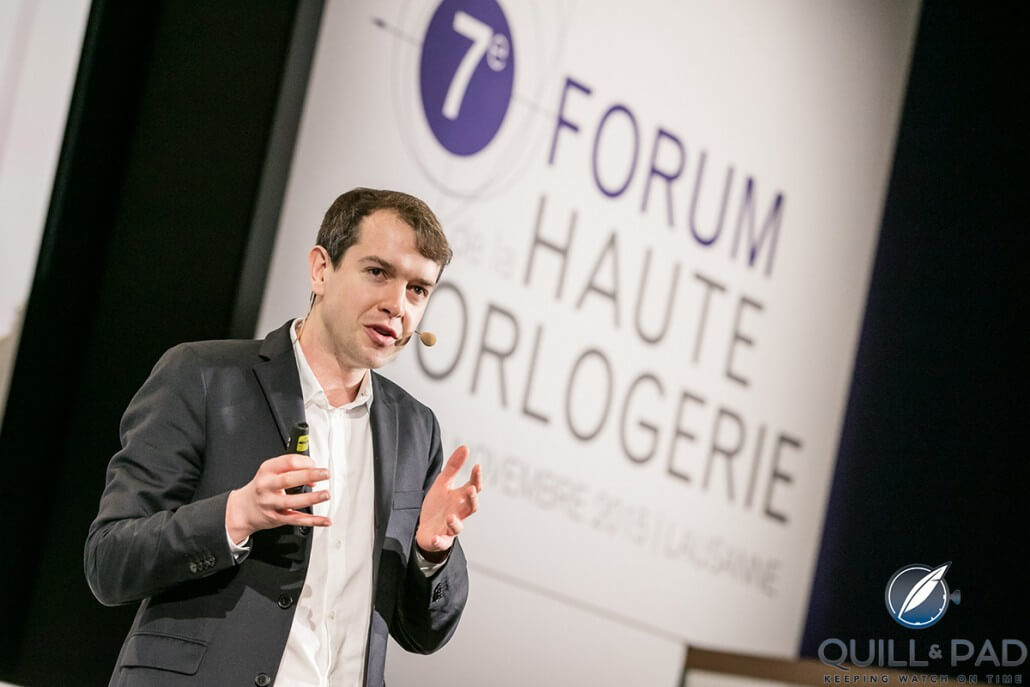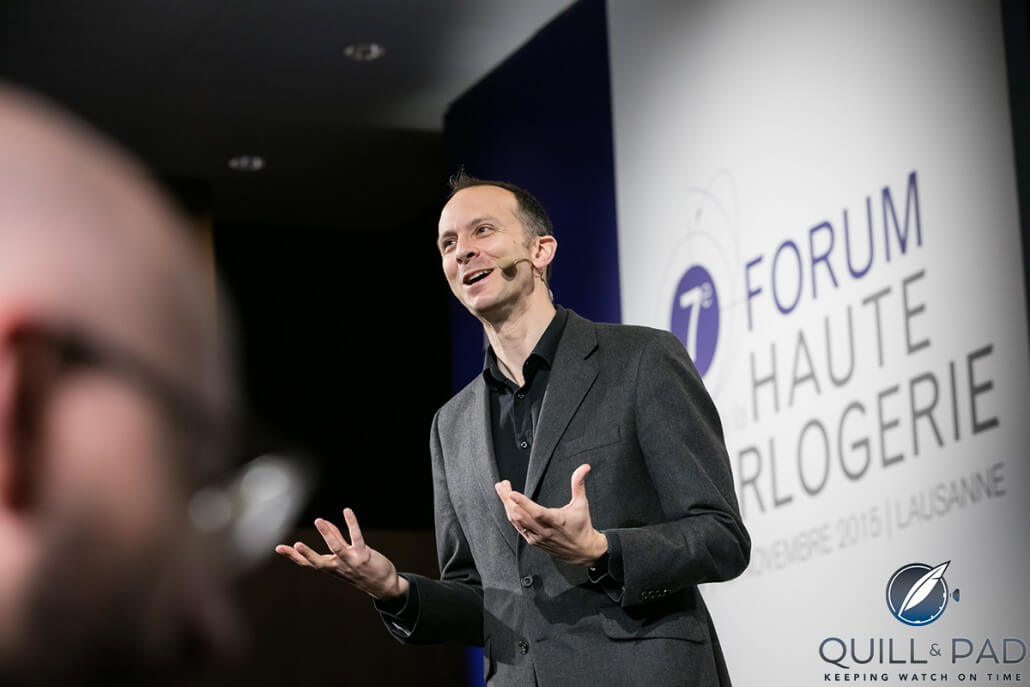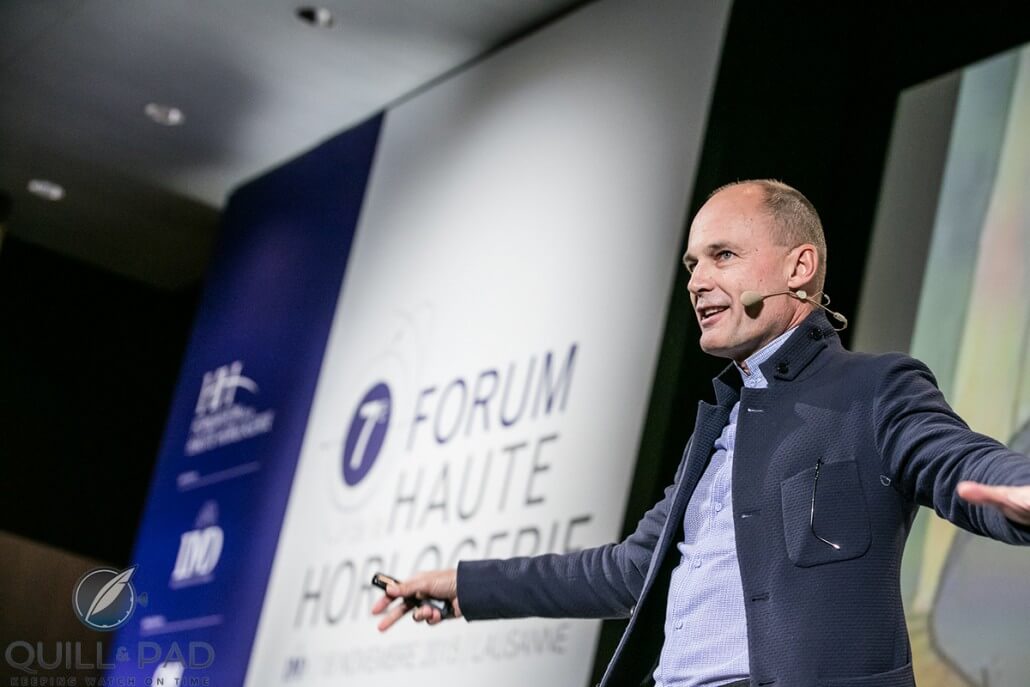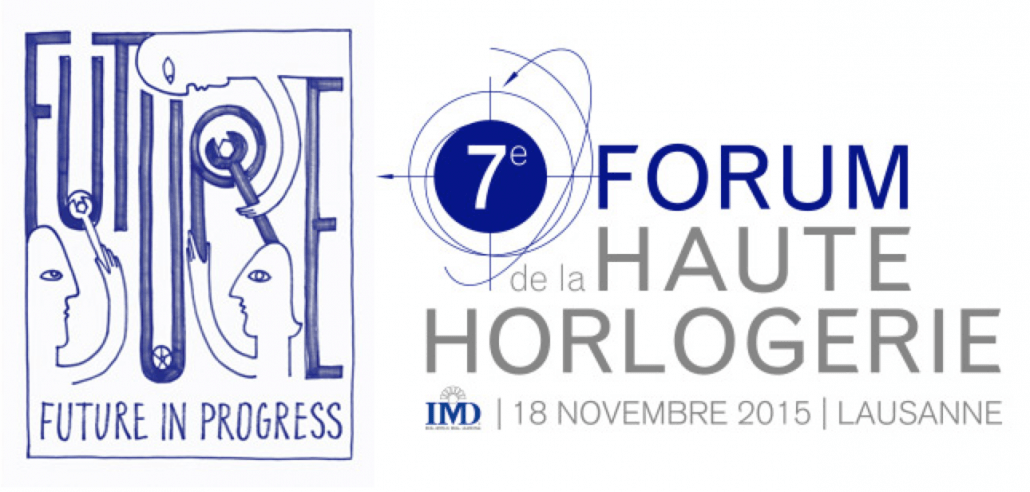On November 25, 1915 Albert Einstein introduced his general theory of relativity to the scientific community in Berlin.
Now, on the 100th anniversary of this scientific milestone, the Federation de la Haute Horlogerie (FHH) poses the question through its seventh forum, entitled “The Future in Progress,” as to whether this theory is still relevant.
Relativity, which envelops Einstein’s special and general relativity theories, contains concepts pertaining to space and time – specifically that these two entities should be considered together.
Now, you don’t need to be a physicist to know that Einstein’s theory is something that explains our crazily complicated world in a crazily complicated way. You do, however, need to be a physicist to understand it in my opinion.

Particle physicist Harry Cliff at the 7th Forum de la Haute Horlogerie (photo courtesy www.point-of-views.ch)
At the FHH Forum, Harry Cliff, particle physicist at the University of Cambridge and a CERN collaborator, postulated that in order to progress, we will need to give up the “flexible fabric” ideas of space and time as found in Einstein’s theory.
Cliff explains, “The theory of relativity is basically a theory of space-time, and yet the very notions of time and space are no longer relevant in the quantum mechanics world of the infinitely small that we are now notably studying in the Large Hadron Collider at the CERN.”
Just as Einstein showed a willingness to challenge established principles of his era, so should we do the same today for his now-established theory of relativity. “To make progress in the future, we may have to let go of past and present ideas – even those of Einstein,” Cliff explained during his fast-paced talk at Lausanne’s IMD business school.

‘Financial Times’ columnist Tim Harford at the 7th Forum de la Haute Horlogerie (photo courtesy www.point-of-views.ch)
Seeing the future?
Cliff’s opinion was underscored by Financial Times columnist Tim Harford, who put it a different way – by explaining that financial superforecasters are only effective when they possess genuine, active, open-minded thinking.
Financial forecasters – if they’re any good at their jobs – challenge, question, and disagree. And this not only outwards, but also inwards.
The greatest strength of the forecaster, Harford explained, is the power to change his or her mind. “When the facts change, so can my mind,” he said.

Bertrand Piccard, co-founder of Solar Impulse, spoke at the 7th Forum de la Haute Horlogerie (photo courtesy www.point-of-views.ch)
The co-founder of Solar Impulse, Bertrand Piccard, another speaker at the Forum, concurred in his own way. “Innovation only happens when we go outside of the box. There is more than one way to do anything,” he said.
These are fantastic lessons for today’s world of luxury watchmaking using examples from other specialty fields: honor the past, but don’t dwell in it. There might be something better ahead if you open your mind wide enough to receive it.
For more information about the 2015 FHH forum and the speakers there, please visit www.hautehorlogerie.org/forum-de-la-haute-horlogerie/forum-2015.


Leave a Reply
Want to join the discussion?Feel free to contribute!